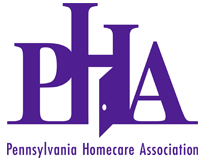- Home
- Education and Events
- About PHA
- Advocacy
- Federal
- State
- Advocacy Toolkit
- Advocacy in Action
- About Care at Home
- Join PHA
- Find a Provider
- Contact Us
Technology as a Helping Hand
I’ve Fallen, and I Can’t Get UpPersonal emergency response systems (PERS), sometimes called medical emergency response systems, give you and your loved one an extra layer of protection. They let you call for help in an emergency with the push of a button and sometimes even without a button. TelehealthWith the advent of telehealth services, it is becoming more common to be able to have virtual doctor visits or other health and safety monitoring services from a distance. Typically the services are provided via a computer link or over the phone, allowing your loved one to stay in place. Check with your doctor or your home health or homecare agency to see what telehealth services are offered and/or covered. Medication HelpWorried that pills are not being taken at the right time or the right dose? There are remote medication dispensing and monitoring systems that can be programmed to dispense the correct dosage at the right time, as well as to notify caregivers if pills are not taken. Check with your homecare agency for more information. Fall-Prevention LightingIf you’re worried about your loved one falling at night, invest in lighting systems designed to automatically light up when someone steps on a pressure pad beside the bed. The lights will turn off when the person returns to bed. Floor-Mat AlarmFor loved ones who have a tendency to wander, you can purchase a mat and place it by a doorway or next to the bed. It will sound an alarm if someone steps on it. Home Motion SensorsSeveral systems are designed to inform you about your loved one’s activity levels. These updates will give others a sense of what’s going on at home if you’re running errands and alert you if your loved one is unusually inactive and may need help. Independent Living AidsThere are countless products and appliances that make everyday activities easier – from eating and preparing food to bathing and dressing.
Try It Before You Buy ItPennsylvania’s Assistive Technology Lending Library through the Institute on Disabilities at Temple University is a free service that lends devices to Pennsylvanians of all ages and disabilities. Your loved one, family members, friends or someone who is helping with assistive technology, such as a therapist or counselor, may make requests.
|

 There are many devices on the market designed to increase safety and assist family caregivers. While you already might be using simple technology, such as a baby monitor, here is a sample of some other products created with elderly homecare consumers in mind.
There are many devices on the market designed to increase safety and assist family caregivers. While you already might be using simple technology, such as a baby monitor, here is a sample of some other products created with elderly homecare consumers in mind.